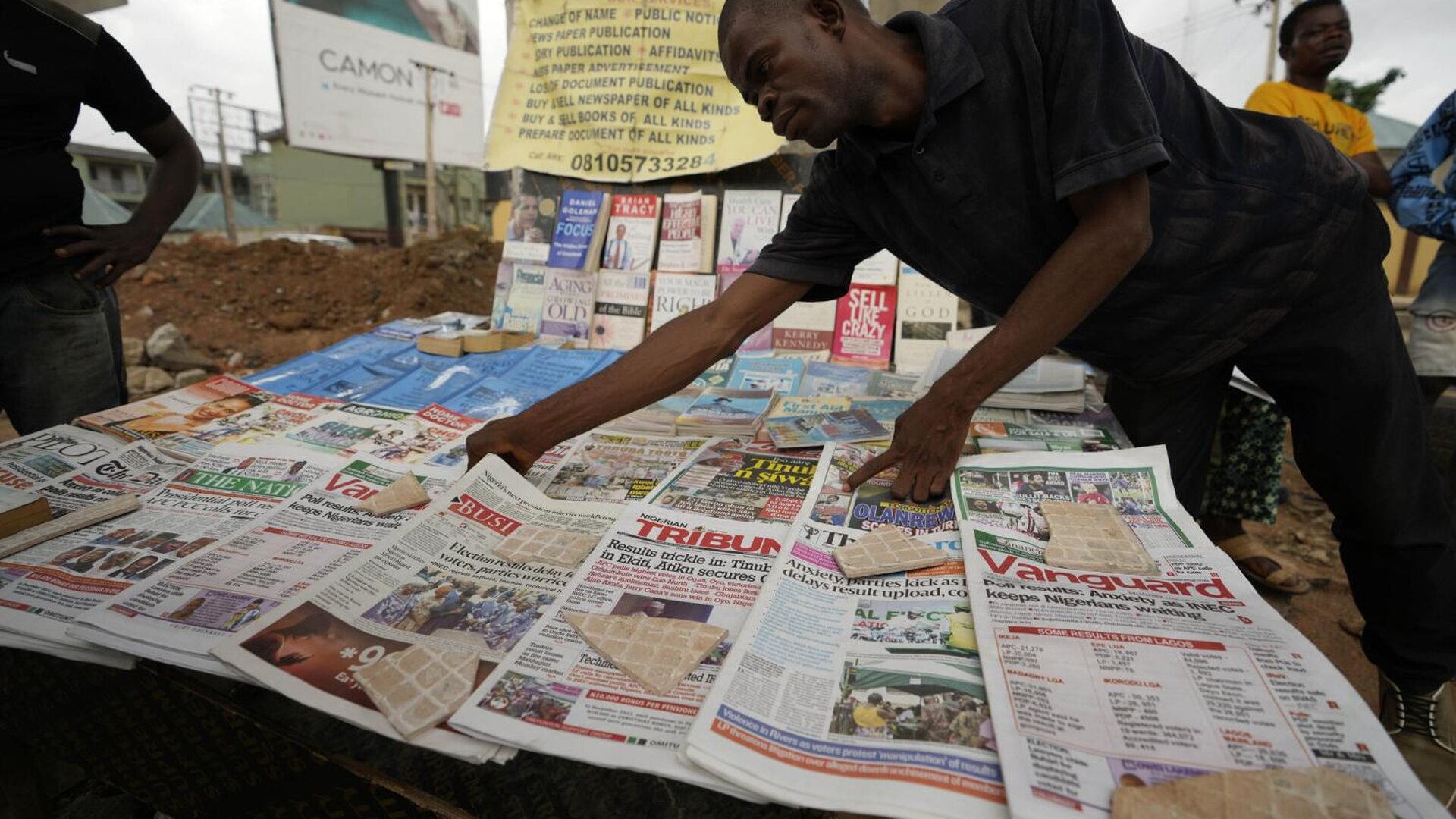
Five Key Disinformation Tactics Shaping Nigerian Elections
The second of Nigeria’s off-cycle governorship elections for 2024 will take place on 16 November 2024, as citizens in Ondo elect their governor. The ruling All Progressives’ Congress has established a firm grip on the state in recent years, delivering resounding victories for former Governor Rotimi Akeredolu and President Bola Tinubu in last year’s elections. But despite a fractured opposition at national and state levels, recent anti-government sentiment cannot be discounted and could result in an upset result.
Unfortunately, another possible determinant in the outcome will be information disorder. The spread of false or manipulated information has become a staple in political strategies in recent times. The 2024 Ondo gubernatorial election has been no exception. In this piece, we explore five key disinformation tactics to watch for as the election unfolds and the potential impact on the overall outcome.
FALSE REPORTS OF MAJOR CANDIDATES STEPPING DOWN
One of the most potent disinformation tools in the run-up to elections is the spread of rumours about major candidates withdrawing from the race. This tactic is often deployed hours into the voting exercise, as seen in previous elections, where false reports claim that certain major candidates have stepped down or endorsed a rival. Such claims are designed to confuse voters, disrupt campaign momentum, and mislead the electorate about the true state of the race.
For instance, if a strong opposition candidate is falsely reported to have withdrawn or pledged allegiance to a ruling party candidate, it could sway undecided voters or create confusion about voting intentions. Given the polarised nature of Ondo’s political landscape, this kind of disinformation can significantly impact the electorate, particularly in a tightly contested election.
CIRCULATION OF MANIPULATED OR OUT-OF-CONTEXT MEDIA
The sharing of false or out-of-context media is a disinformation tactic deployed to possibly undermine the reputation of candidates, political parties, or even election authorities, such as the Independent National Electoral Commission (INEC). Videos, photos, or audio clips may be doctored or taken out of context to portray candidates, election officials, or security agents in a negative light. These media are often circulated to falsely depict electoral violence, voting disruption, vote-buying, and election rigging, among other types of election-related incidents.
Once this is shared widely, the damage is often immeasurable, even when the claims are later debunked. Voters may not always have the time or resources to verify the authenticity of these materials before casting their votes, and this can alter public perception, particularly among undecided voters.
MISLEADING REPORTS OF ELECTION-RELATED VIOLENCE
Disinformation regarding election-related violence is a common strategy to spread fear, suppress voter turnout, and discredit opposition parties. False or misleading reports of violence, including clashes between political thugs, security forces, or rival parties, may be circulated to create an atmosphere of instability.
In Ondo, for instance, exaggerated or fabricated reports of political violence could be used to dissuade voters from participating, particularly in opposition strongholds. These reports may claim that certain regions are unsafe or that violence is imminent, causing potential voters to stay home. Additionally, political actors may exploit these manipulated stories to justify the deployment of security forces, thus influencing the dynamics on election day and potentially escalating tensions in key areas.
FABRICATED REPORTS OF EARLY VOTING IRREGULARITIES AND FAKE ELECTION RESULTS
Another disinformation tactic to watch out for is the circulation of fake election results before and after the polls close. In the Ondo election, disinformation actors may spread false “early results” to influence voter behaviour. For example, false results may be released to suggest that one candidate is already winning by a wide margin, hoping to demoralise the supporters of the other parties and decrease voter turnout.
Such disinformation can be particularly damaging when spread on social media, as it can rapidly go viral and influence voters’ decisions. False reports of voting irregularities, such as claims of ballot box stuffing or voter suppression, could also be used to cast doubt on the legitimacy of the election process and undermine confidence in the final results.
RUMOURS UNDERMINING THE CREDIBILITY OF INSTITUTIONS
A particularly insidious form of disinformation involves attacks on the credibility and neutrality of institutions involved in the election, such as INEC and Nigeria Police. In previous elections, disinformation has been used to suggest that the election body and security agencies have biassed allegiances or that they are corrupt. For example, rumours about the political affiliations of key INEC officials, such as the Resident Electoral Commissioner (REC) for Ondo State, can erode public trust in the electoral process.
If voters believe that the electoral officials or security agents are not neutral or fair, it may lead to widespread dissatisfaction with the election results, regardless of the actual outcome. Discrediting INEC could also create the pretext for challenging the legitimacy of the election.
From false or misleading reports of candidates stepping down to the circulation of manipulated media, fabricated election violence, and fake results, these disinformation tactics can undermine the integrity of the election process and influence voter behaviour. Additionally, attacks on institutions such as INEC may sow further doubt and mistrust in the electoral system.
It is crucial for political actors, voters, observers, and all other stakeholders to carefully scrutinise the information they encounter during the exercise to avoid engaging in or falling victim to election disinformation campaigns. Verifying sources, cross-checking news reports, and debunking false and misleading claims are key steps in mitigating the effects of disinformation on the outcome of the 2024 Ondo election and future electoral contests in Nigeria.
Raji Olatunji is a Misinformation Analyst at the Centre for Democracy and Development
